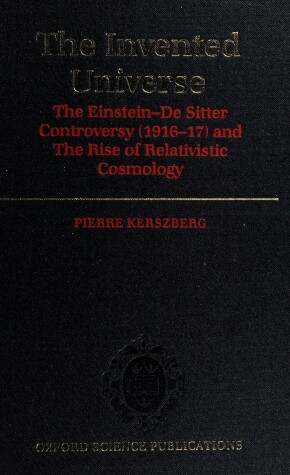In 1917 Albert Einstein created the first model of the universe based on general relativity, his new theory of gravitation. This was a static model, however, and it was only in 1930 that non-static solutions (containing the famous "Big Bang" theory) were finally admitted. Einstein was led to cosmology after a series of controversial discussions with the Dutch astronomer Willem De Sitter. De Sitter's ingenuity forced Einstein to face the question of what his general theory actually said about the world, over and above the achievements of mathematical formalism. This Einstein-De Sitter controversy has borne an indelible imprint on modern cosmological science, for it was in trying to come to grips with its actual significance that two other great minds, Eddington and Weyl, turned cosmology into a complete re-consideration of the nature of time. This early history of the science of the Universe shows how and why the relativistic way of thinking remains a unique contribution to the most fundamental questions which have always haunted the modern philosophy of nature - the issues of creating and becoming.
- ISBN10 0198518765
- ISBN13 9780198518761
- Publish Date 1 October 1989
- Publish Status Active
- Out of Print 29 November 2002
- Publish Country GB
- Publisher Oxford University Press
- Imprint Clarendon Press
- Format Hardcover
- Pages 412
- Language English
